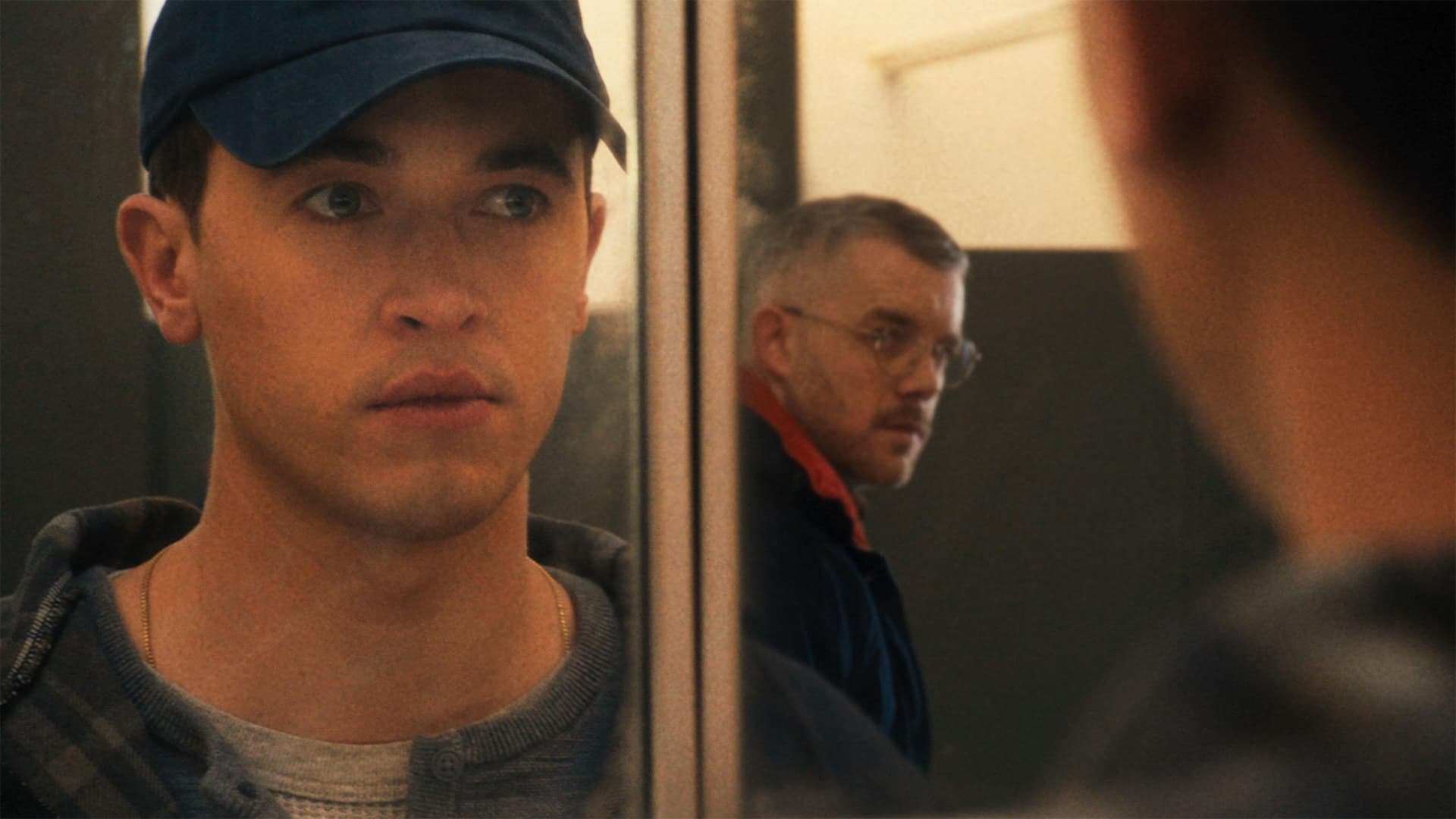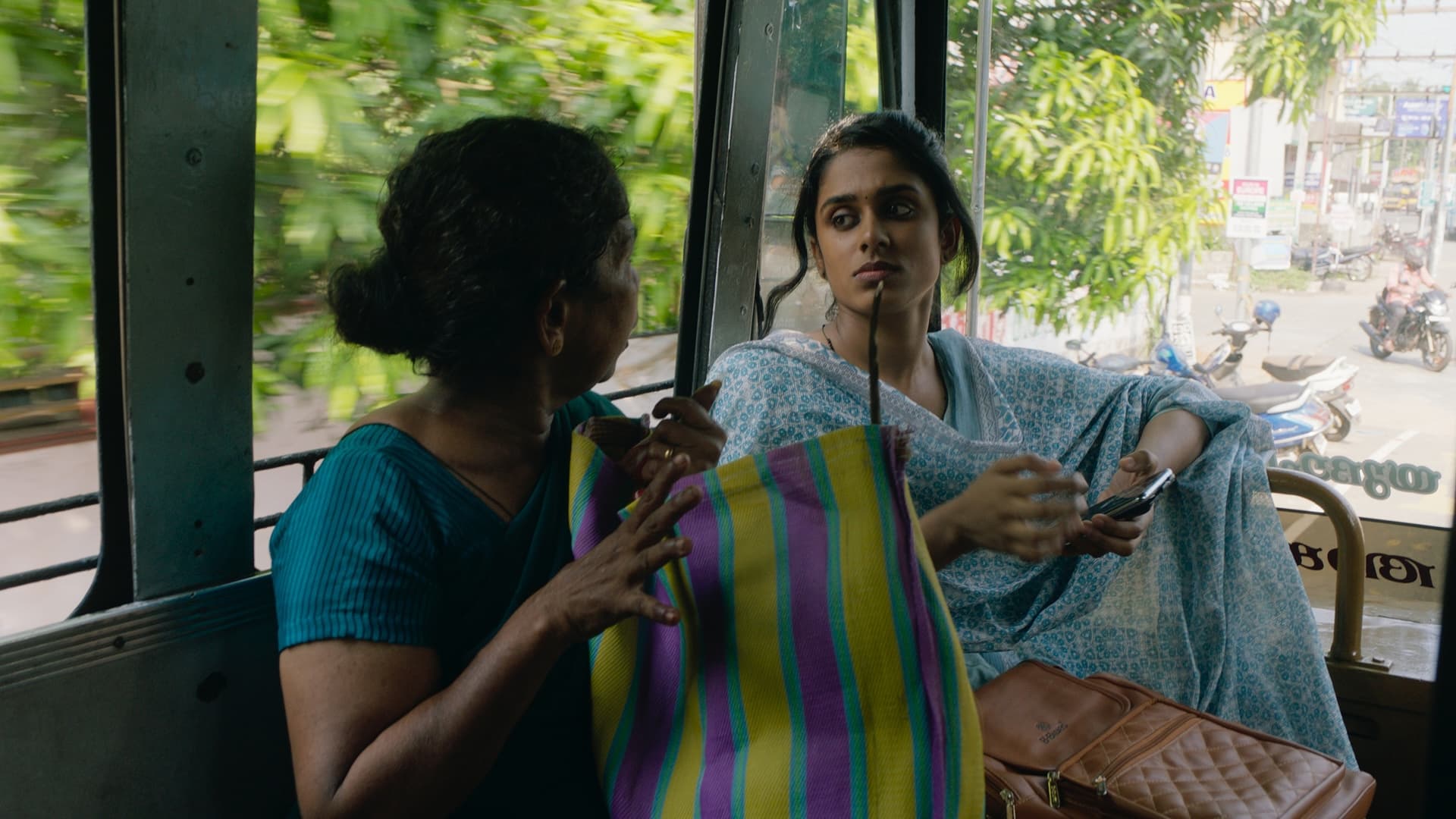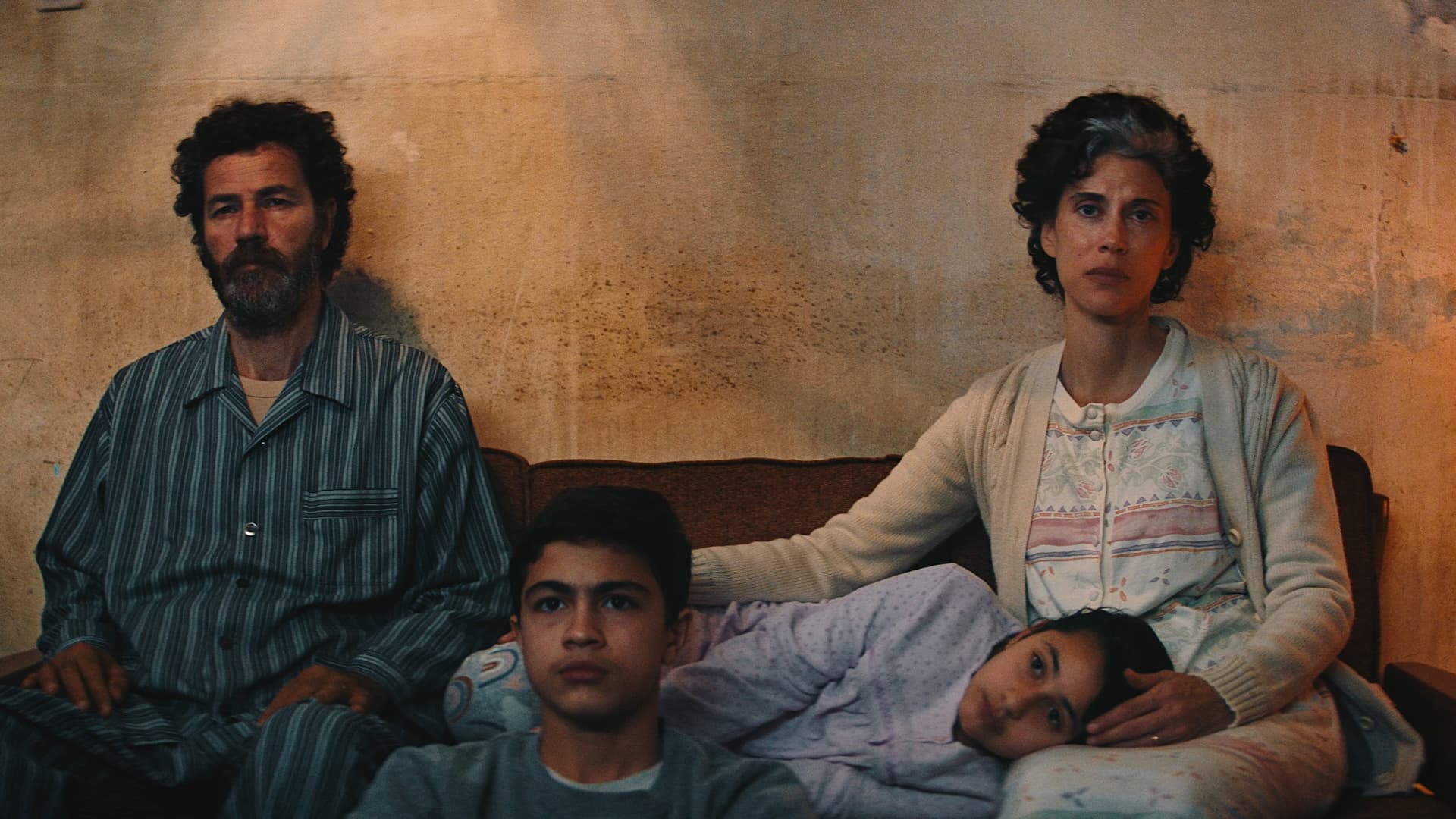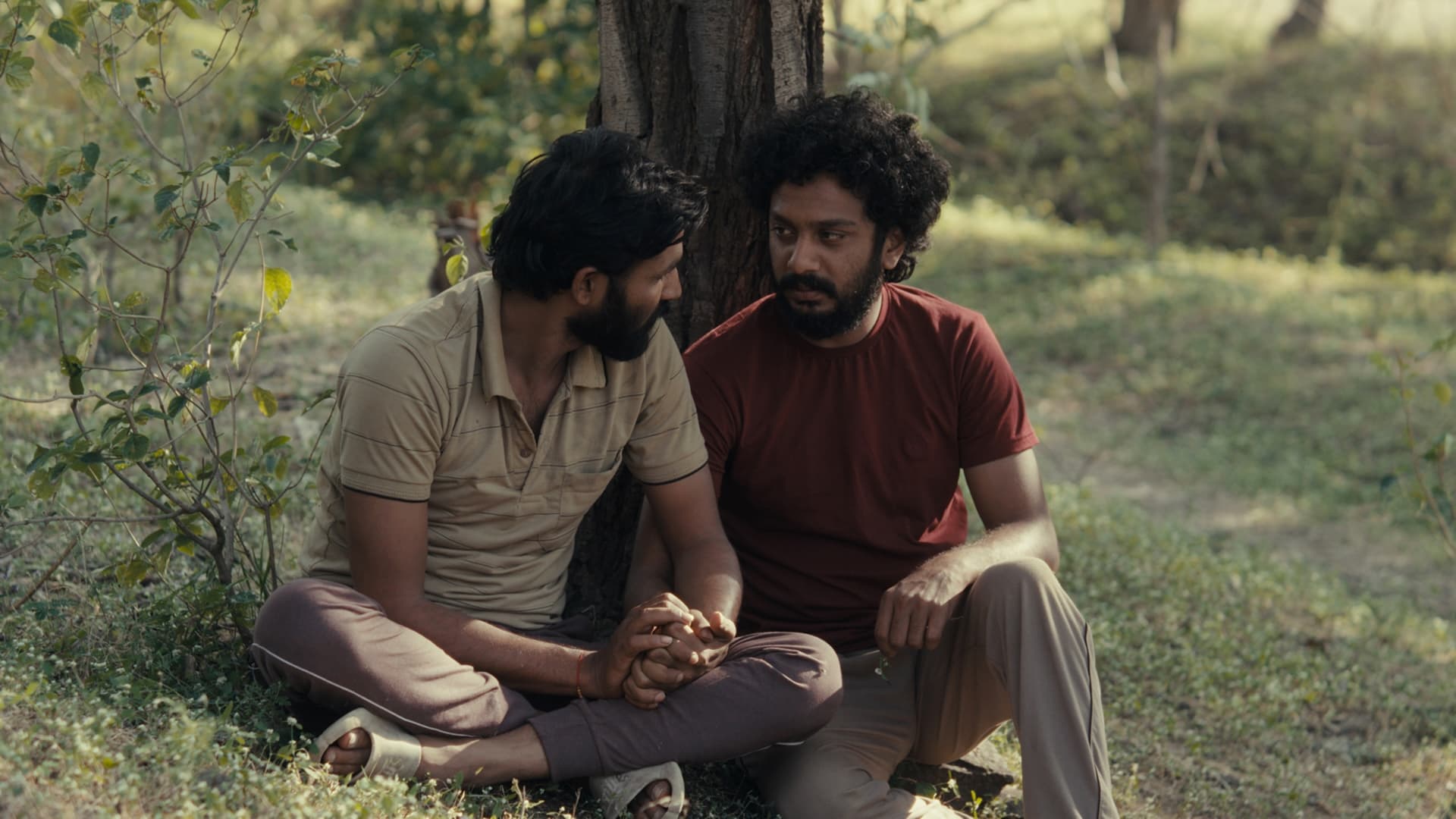
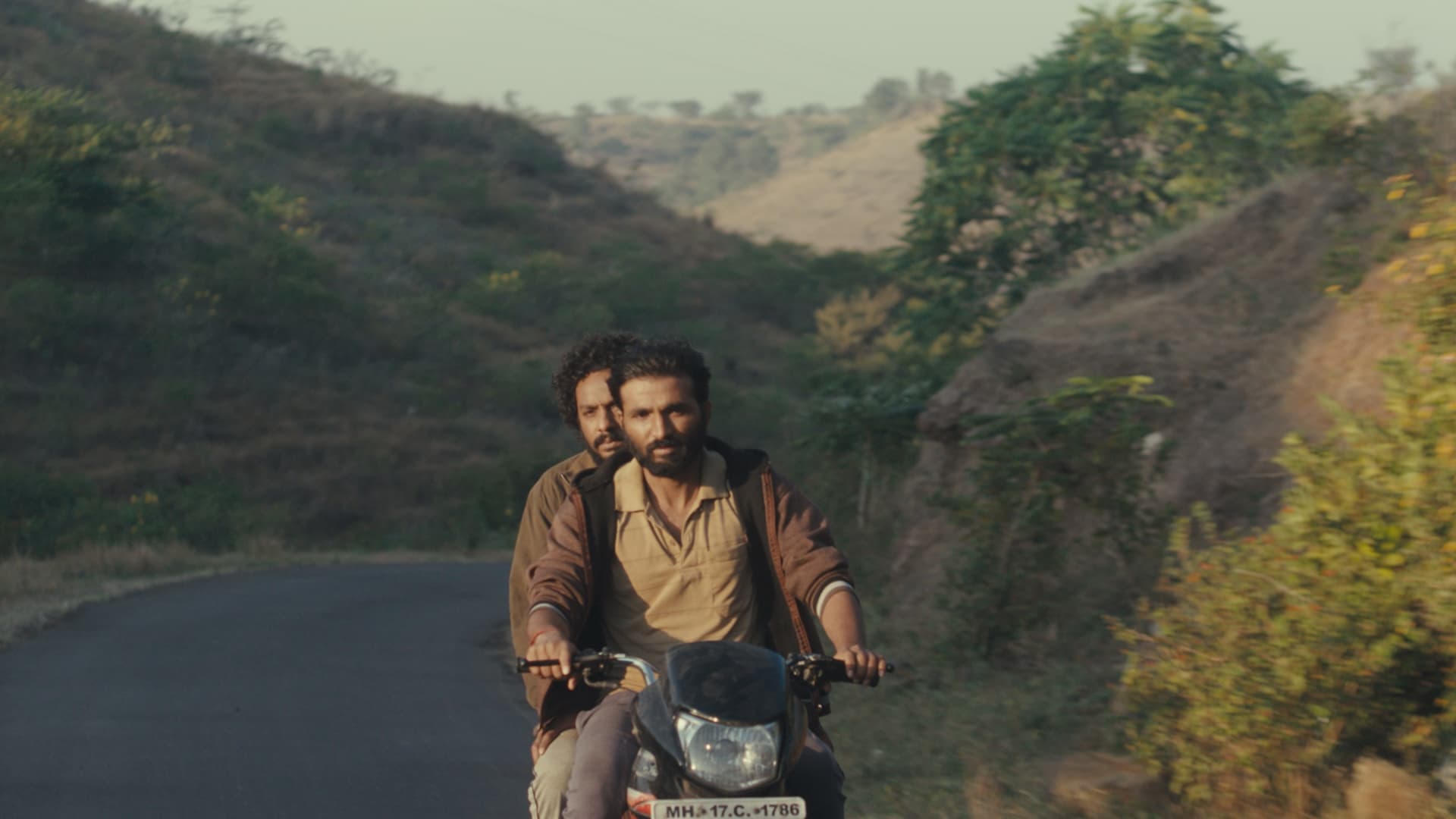
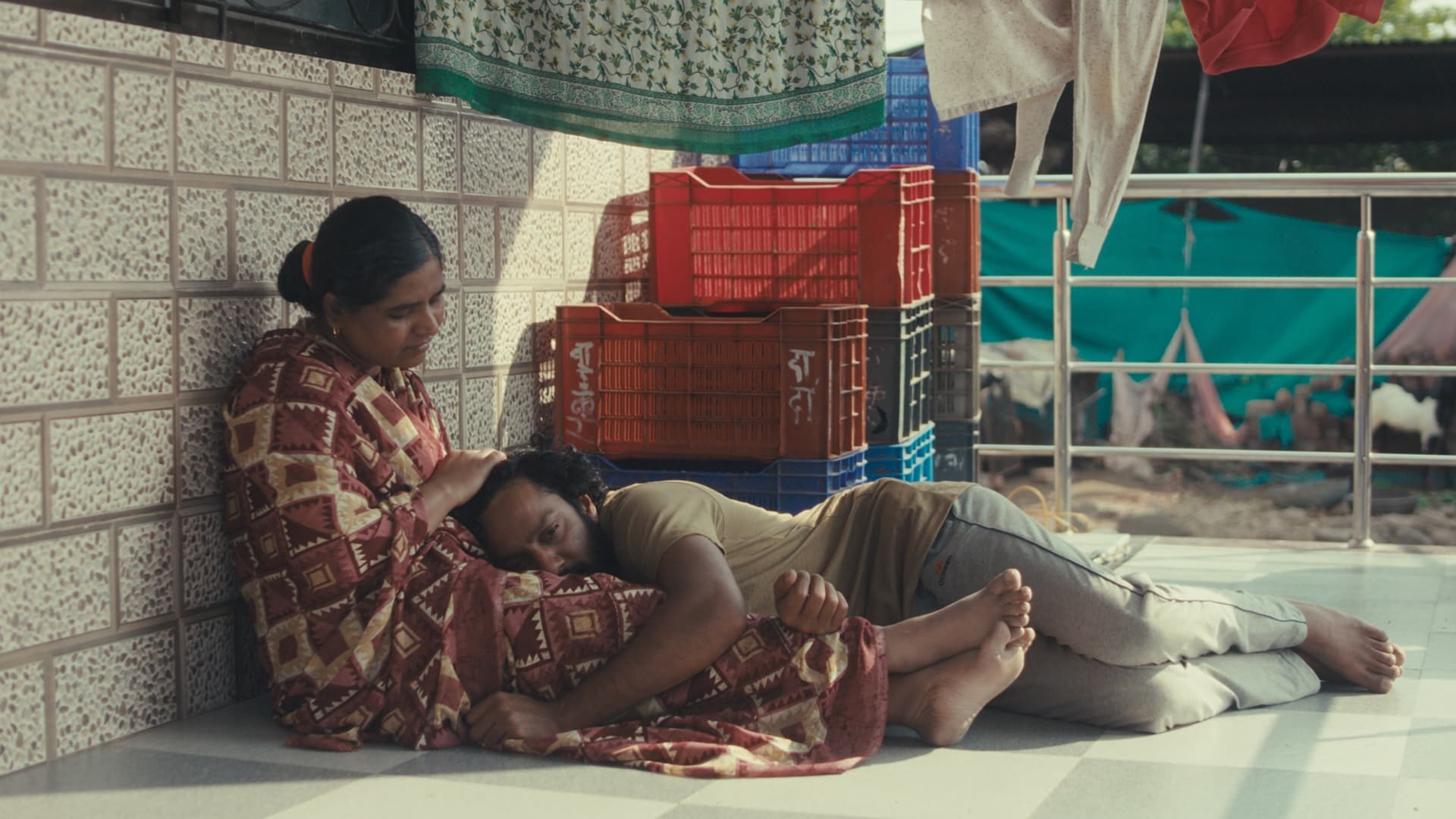
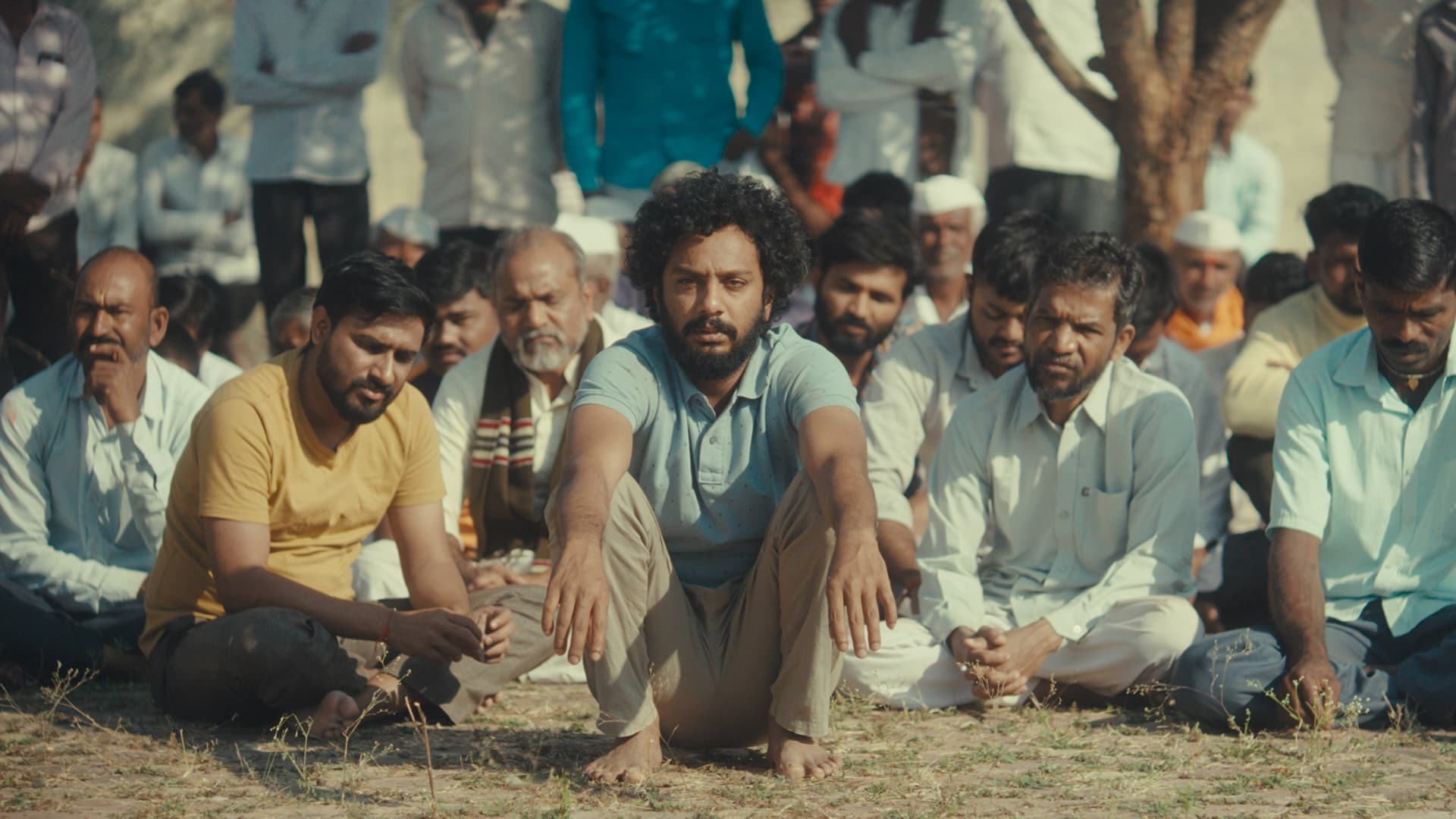
2025
Cactus Pears
2025
Cactus Pears
When Anand’s father dies, he returns to his family’s village to complete his filial duties. The village is another world, where homosexuality is not acknowledged. But it is also the home of Balya, with whom intimacy blossoms for Anand. A film of great simplicity and tenderness.
Director
Rohan Parashuram Kanawade
Runtime
112 Minutes
Country
India, United Kingdom, Canada
Classification
Unclassified 18+
Anand works in a Mumbai call centre, but when his father dies, he must spend ten days in his family’s rural village in western India to complete his filial duties.
Anand’s parents have no problem with the fact that their son is gay, but the village is another world, where homosexuality is not acknowledged and Anand is relentlessly pressured to explain why he is not married. However, it is also the home of his childhood friend Balya, a local farm worker facing similar issues. The pair reconnect and their intimacy blossoms.
This is a film whose power is born of a great simplicity, with long elegant takes and a sparse soundtrack underlining the growing tenderness between the two men, whose sexuality puts them outside the limited imagination of the village. Writer-director Kanawade has spoken of “portraying queer individuals as ordinary people rather than idealized figures, humanizing their story.” His success in achieving this is borne out by the film’s triumphant reception at Sundance and other festivals worldwide.
Anand’s parents have no problem with the fact that their son is gay, but the village is another world, where homosexuality is not acknowledged and Anand is relentlessly pressured to explain why he is not married. However, it is also the home of his childhood friend Balya, a local farm worker facing similar issues. The pair reconnect and their intimacy blossoms.
This is a film whose power is born of a great simplicity, with long elegant takes and a sparse soundtrack underlining the growing tenderness between the two men, whose sexuality puts them outside the limited imagination of the village. Writer-director Kanawade has spoken of “portraying queer individuals as ordinary people rather than idealized figures, humanizing their story.” His success in achieving this is borne out by the film’s triumphant reception at Sundance and other festivals worldwide.
“The film’s honesty, whether loquacious or laconic, sears.”
IndieWire
“A gentle slow-burn that occasionally becomes electric.”
Variety
“A giant leap forward in terms of queer representation in Indian Cinema.”
Hindustan Times
Sundance - Grand Jury Prize World Cinema (Dramatic), San Francisco - Special Jury Prize, SXSW London – Best Feature, Guadalajara - Maguey Award for Best Feature Film, Melbourne
Film Credits
Director
Rohan Parashuram Kanawade
Year
2025
Country
India, United Kingdom & Canada
Language
Marathi
Subtitles
English
Type
Feature & Fiction
Program Strand
World Cinema
Producer
Neeraj Churi, Mohamed Khaki, Kaushik Ray, Hareesh Reddypalli, Naren Chandavarkar & Sidharth Meer
Writer
Rohan Parashuram Kanawade
Cinematographer
Vikas Urs
Editor
Anadi Athaley
Cast
Bhushaan Manoj, Suraaj Suman & Jayshri Jagtap
Film Source
MPM Premium
Genre
Asia, Drama, Family & LGBTQIA+
Purchase Tickets
More to see...
Queer Shorts
Celebrating the best in LGBTQIA+ short filmmaking.
Plainclothes
In Syracuse, 1996, Lucas (Tom Blyth) is a rising undercover agent tasked with luring gay men to public toilets to arrest them. When he meets Andrew (Russell Tovey) on the job, he breaks the rules and falls in love. In his directorial debut, Carmen Emmi creates a striking film that draws the viewer into experiencing the world from Lucas’s perspective.
Victoria
Victoria, a young beautician working in a suburban beauty parlour, has decided to elope with her Hindu boyfriend against her conservative Catholic parents’ ruling. Amid a never-ending roster of customers and teary phone calls to her unhelpful boyfriend, Victoria reflects on her situation while grappling with conflicting emotions.
All That's Left of You
A powerful and urgent family epic, All That’s Left of You spans 75 years of Palestinian history. As a mother reflects on the events that shaped her son’s defiance, Cherien Dabis delivers a gripping, politically charged portrait of loss, legacy and resilience across generations.


